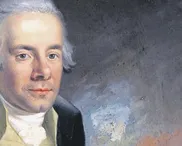PLASTIC PEOPLE
How Queer Theory is changing us (Latimer Studies 73)
By Peter Sanlon. . The Latimer Trust. 45 pages. £3.99
ISBN 978-0-94630-783-8
During the past few decades, many in the church have been busy engaging with the issue of homosexuality. Peter Sanlon shows that this issue is secondary.
More fundamental is the way in which our presuppositions have shifted as a result of the ‘startling success’ of the advocates of ‘queer theory’. They set out to change the way that all of us think about our identity. Queer theory is ‘a hugely ambitious academic project which seeks to re-imagine all aspects of human existence’ (p.10). Michael Foucault argued that ‘self-creation’ has no limits, and it is now commonly assumed that we are free to make ourselves what we want to be. Thinkers such as Judith Butler (Gender Trouble, 1990) assert that our ‘sexed identity’ as male or female is socially constructed. Butler attacks ‘heteronormativity’ (i.e. the assumption that heterosexual desire is ‘normal’). She argues that, actually, heterosexual desire is ‘predicated upon a latent, usually sub-conscious, homosexual desire’ (p.22), in other words she claims to know the ‘true’ identity of heterosexual people — they are all latent homosexuals. Her ‘conception of freedom is an absolute freedom which forces itself upon people who may not want it, or may not realise they want it. As such it is a freedom which enslaves’ (p.24).






